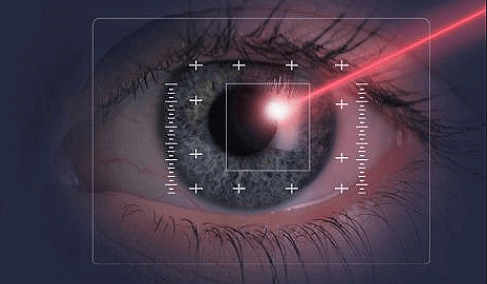The decision to undergo laser eye surgery to correct vision is an increasingly popular one, completely doing away with the need to wear contact lenses or glasses. Laser refractive surgery is so called because of the ultraviolet excimer laser used to reshape the outer layer of the eye, or cornea, correcting near and far-sightedness and restoring 20/20 vision in the vast majority of cases.
The benefits of eye laser surgery are many, but it is important to fully understand your options before deciding on which procedure to have. It is also important to take advice as to the best suited treatment for you from a registered ophthalmologist, who should have had specialist training in laser refractive surgery. You will also need to be over 18, at the very least, to ensure that your eyes are fully developed and have had a more or less steadily consistent prescription for the last two years or more.

Let’s take a look at the most popular types of laser surgery as well as some of their pros and cons.
LASIK, or laser eye surgery in situ keratomileusis, is a popular and common procedure in the UK for people with astigmatism and involves the surgeon making an incision across the cornea in order to reshape it with the laser. If you have a particularly high prescription, however, this procedure may not be appropriate for you.
A variation of LASIK, customised to the individual patient, is called Wavefront-guided LASIK. An extremely precise procedure, it works by mapping and then reducing the specific irregularities of the patient’s eye whilst also correcting their eyesight.
If you have a low prescription then PRK(photorefractive keratectomy) might be appropriate for you. An older procedure,developed in the 1980s before LASIK and LASEK (see below) it does not require an incision in the patient’s cornea.
Similar to PRK is LASEK (laser epithelial keratomileusis) although this surgery does still require the making of an incision across the cornea. It is, however, a good choice if you are particularly keen to heal quickly after your procedure or are particularly worried about complications.
Are there any risks?
It must be remembered that all these procedures are surgery and, as such, do carry some risks. These really are minimal though. Dry eyes can be an issue but this is readily treated with eye drops, whilst some people who have undergone a higher degree of correction for near and far-sightedness occasionally report an initial glare when driving at night-time.Make sure you address any concerns you might have with your fully qualified ophthalmologist from the outset and don’t be afraid to ask as many questions as you need to. Every patient is unique and a good doctor will recognise that, taking a thorough medical history from you before deciding how best to proceed. That said, the rate of complications is under 5% with most patients.
